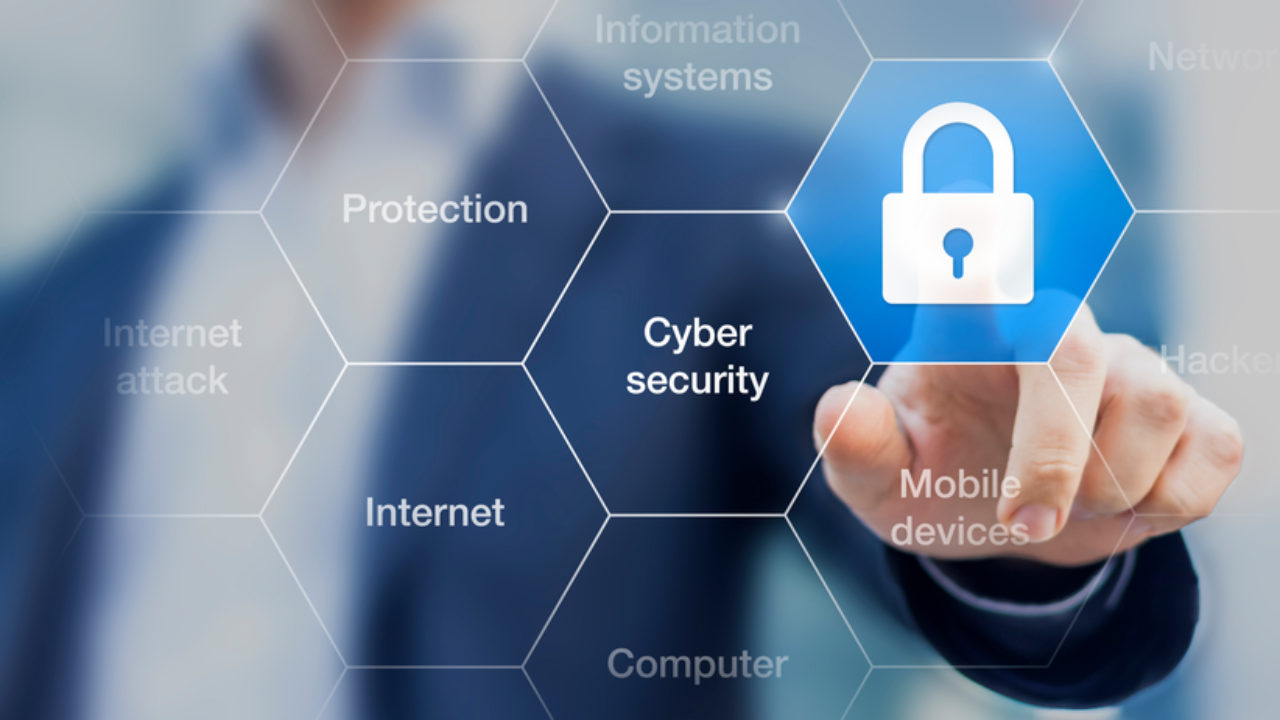Cyber security is the practice of ensuring information security in the face of cyber threats. It covers risks posed by cyberattacks, data theft, malware, phishing scams, and network breaches. Cyber attacks are becoming more sophisticated every day and have the potential to cause immense damage. In fact, cyber threats are now one of the top three security threats faced by businesses.
Any business must take cyber security seriously and constantly keep data safe from hackers. To help businesses achieve optimum security, this blog will discuss essential cyber security measures that every business must follow.
Educate Employees on Cyber Security
Educating employees on cyber security is essential for companies to prevent cyber attacks. It helps employees understand the importance of cybersecurity and develop a strong understanding of best practices. This will help them quickly identify and report cyber vulnerabilities, preventing costly data breaches.

Additionally, it is important to train employees on cybersecurity best practices. This can help them recognize potential threats and vulnerabilities in their organizations. Regular updates on new cybersecurity protocols can help employees stay up-to-date on the latest cybersecurity practices. Holding employees accountable for their cybersecurity activities is another way to educate and train employees on cybersecurity. A corporate culture focused on security should be cultivated to hold employees accountable for their actions online.
A company’s cybersecurity posture can be enhanced by implementing security controls at various points of its online ecosystem. This includes developing a strong network firewall, implementing strong access policies, and using strong encryption software and hardware devices. Other steps include regularly updating malware signatures and firmware, and ensuring malware cannot enter the network through internet-connected devices. Also, it is important to monitor employee internet usage closely to detect abnormal internet traffic patterns and take action as early as possible to mitigate any potential risks
Secure Your Wi-Fi Network
To protect a business from cyber-attacks, it is essential to secure the Wi-Hn network. Firstly, you must ensure that the network is hidden and password protected. This will prevent unauthorized users from accessing the network. Secondly, you must limit access to trusted devices only. This will help to prevent malware attacks as well. Thirdly, you must have regular firewall updates and patches to prevent cyber-attacks. Lastly, you must back up company data regularly to reduce data loss in the event of a cyber-attack. By following these steps, businesses can stay safe from cyber-attacks and ensure business continuity.
Backup Regularly
Businesses must ensure the security of their data and its systems from cyberattacks. Regular backup of business data is essential. It helps ensure data security and provides a backup in case of data loss.
It’s important to check on-premise and cloud servers regularly to ensure the latest backup is available. This will help avoid data loss due to power glitches or server failures.
Offline backups are another way to ensure data security. Businesses can back up their computers’ data using an external drive or even a CD/DVD. This is essential as it allows them to recover in the event of a cyberattack. Also, storing backup copies either offsite or in the cloud is vital.
Limit Access to Critical Data
Businesses must take cyber security measures to safeguard data and keep their business running smoothly. Here are some essential steps that you can take to protect your business from cyber-attacks and data theft.
First and foremost, organizations must implement a protocol to revoke the administrative privileges of employees when they are terminated to prevent insider attacks. This will ensure that data access is limited only to those with authorized access.
Secondly, organizations should implement layered security measures such as firewalls and password access controls to prevent hackers from accessing sensitive information. Businesses must also ensure that all devices are updated with the latest software patches and firmware versions and that practices such as blurring or de-booting devices are followed, in addition to training employees on identifying malware and phishing scams.
Thirdly, businesses must develop a business continuity plan as a backup for data in case of any breach. This will help organizations recover quickly if a cyber attack occurs. Also, businesses must implement appropriate encryption techniques, such as HTTPS, to protect data transmission.
Lastly, businesses must employ security protocols such as ISO/IEC 27001:2013 to reduce the risk of cybercrime.
Avoid Suspicious Emails and Texts
It’s important to avoid phishing scams when receiving emails or text messages that could be suspicious. These fake emails or texts appear from legitimate individuals or companies and could contain malicious attachments or links, often leading to malware infection. To avoid being fooled by phishing scams, you should never open any attachments or links in emails or texts that appear to be from a trusted source. You can also delete these messages without opening them.
Another important step is to monitor employee behavior for signs of suspicious activity. This includes monitoring internet access and using surveillance systems to identify potential threats. It’s important to regularly update your software and devices with the latest security patches and updates. This will help detect known vulnerabilities and bugs, thus protecting against known cyber-attacks.
Use Complex Passwords and Password Managers
Businesses need to secure their data and sensitive information from cyber-attacks. This is because business data contains valuable information, such as customer, financial, and sensitive data. Strong and complex passwords are among the best ways to secure business data. A strong password should contain characters difficult for hackers to crack, such as letters, numbers, and symbols.
It is important to use strong passwords and password manager security measures when using password managers. Password managers can be used to store and encrypt passwords so that users don’t have to remember them. This reduces the risk of password theft or breach. It also helps users create unique passwords for each account, which makes it harder for hackers to access their accounts with a single password.
While password managers are an effective way to secure business data, employees must use two-factor authentication when available. This additional security step uses two pieces of information (such as a password and a mobile phone verification code) to securely log in to a website or other account. It helps provide additional security against cyber attacks and password theft/breaches.
Businesses must keep their systems updated and upgrade them to stay protected from cyber attacks. By following these simple steps, businesses can ensure that their data is safe from cyber-attacks no matter their device or platform.
Install Antivirus Software
Businesses must take measures to protect themselves against cybercrime. Antivirus software is a vital security measure businesses must take to help protect against online attacks.
Antivirus software includes anti-virus, anti-spyware, and anti-spam filters that work together to help prevent malware, spyware, and phishing scams from affecting their computer systems. These types of malware can be used by hackers to access sensitive information like passwords or credit card information. A firewall can also be installed on a business’s internal network to help protect it from malware attacks and other vulnerabilities.
Businesses should be wary of any suspicious emails that may be phishing scams. These emails could contain malware that could password or credit card information or harm business systems through data theft or disruption. Businesses must take the necessary steps to protect sensitive information and prevent data breaches.
Secure Your Network with a Firewall
A firewall is a piece of software or hardware that acts as a gatekeeper for incoming and outgoing traffic to and from a network. Firewalls are vital in protecting business networks from cyber attacks. They can be configured to block all incoming connections, only allow connections from specific devices or networks, and even monitor traffic for malware and breach attempts. Ideally, business devices connected to the network should have firewall software installed too. These software security measures protect devices against malware, spyware, and other types of cyber threats.
It’s important to regularly patch firewalls to keep them effective. This ensures malicious hackers cannot access business devices or data through the firewall’s weaknesses. Also, business IT services should use secure connections such as SSL encryption when online transactions are concerned. This helps secure business data during transit and prevents cyber attacks on business systems by ensuring that third-party individuals or entities cannot read or modify data.
Encrypt Your Data
As cybercrime becomes more and more prevalent, businesses must take steps to ensure the security of their data. One of the best ways to do this is by encrypting it. Encrypting data means taking special measures to ensure that information cannot be accessed by anyone other than its rightful owners. This keeps data secure from third-party access and makes it difficult for cybercriminals to breach sensitive information using malware or other forms of intrusion. When utilizing online security measures such as password protection and two-factor authentication, businesses go a long way in safeguarding their data from cybercriminals. It is important not to forget the importance of firewall software and hardware in cybersecurity. These devices help protect business computers from online attacks by blocking malicious software from entering the network.
By following these essential cyber security measures, businesses can ensure their data remains safe and secure.
Conclusion
There’s a cybersecurity risk to your business every minute of every day. You must protect your business against cyber threats by implementing best practices such as password security and data backup. Protecting your business against cyber threats starts with awareness and education. That way, employees can take the first steps to secure their businesses from cyber threats and malware attacks. You can safeguard against potential data breach incidents by following cybersecurity best practices. If you’re looking for cybersecurity training, comment below and we’ll connect you with a tutor.





